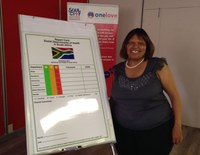
Score card on social determinants of health

Rating the country’s performance in the five areas as it relates to health outcomes, the HRC, Section27, the Alternative Information and Development Centre and African Gender Institute, agreed the government had largely failed to make a speedy enough impact on delivery of services that affect the health outcomes of South Africans.
Giving government an E for the provision of water and sanitation,, HRC deputy commissioner Pregs Govender, said South Africa definitely needed to improve in the two areas. She said her mark was based on the Department of Performance Monitoring and Evaluation’s own statistics that showed SA had regressed since 2009. “About 36% of all households in the informal areas have never received services, about 3.2 million households have broken infrastructure,” she said reading from the HRC’s “Report on the Right to Access Sufficient Water and Decent Sanitation in South Africa: 2014”.
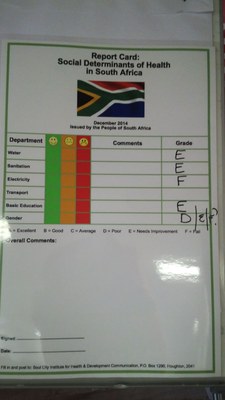 However Govender pointed out that business also bore responsibility for the failures of the State and said government needed to regulate business more effectively with regard to meeting human rights obligations. As an example, Govender said just 1.2% of agribusiness, mining interests and other industry used 95% of the water in rural areas, but were never held to account for water wastage, losses or contamination.
However Govender pointed out that business also bore responsibility for the failures of the State and said government needed to regulate business more effectively with regard to meeting human rights obligations. As an example, Govender said just 1.2% of agribusiness, mining interests and other industry used 95% of the water in rural areas, but were never held to account for water wastage, losses or contamination.
Scoring the government an E for basic education, Thoko Madonko, co-coordinator of the Budget, Expenditure and Monitoring Forum for Section27, said while “some gains have been made, there was a need for improvement”.
“Unfortunately, government still must do more to realize the right to basic education in full and immediately in South Africa. Any delays in access to quality basic education will undoubtedly have a knock-on effect on other socio-economic rights such as the right to health,” she said.
Jeff Rudin, research associate for the Alternative Information and Development Centre (AIDC), said government had failed in electricity provision which was why he had given them a F.
He said 20 years after the ushering in of SA’s democratic government, 23% of households were not electrified according to the government. But “the reality is even worse than this officially derived number”, he insisted. “Poor households are fitted with 20Amp connections instead of the normal 60A connection. This severely limits the number of appliances that can be used at the same time,” Rudin said.
But he said, even worse, was the cost of electricity which was the “major constraint” on its use. Despite the provision of free basic electricity, Rudin said this needed to be increased “fourfold” to meet the true needs of South Africans.
Marion Stevens of Wish Associates and the Africa Gender Institute said she had allocated the government a D for gender, which meant its performance was poor. The good news was the introduction of the HPV vaccine for girls aged 9 to 13 and its Contraception and Fertility guidelines policy among others.
However, several activists took issue with her mark, saying the preponderance of gender-based violence in the country merited an E or F.
Soul City intends to hand over the results of the report cards at the opening of Parliament after the public has its say.
Savera Kalideen, senior advocacy manager for Soul City, said it was distributing the report card – which is available from its website - nationwide for people to rate the government as well. The results would be handed to government at the opening of Parliament in February.
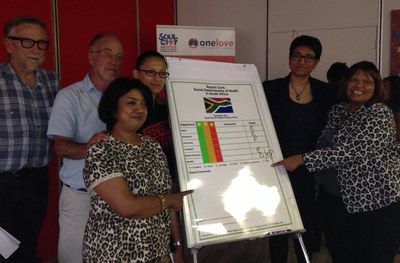
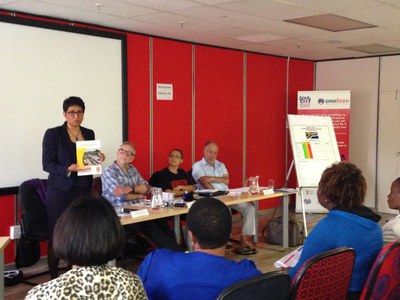
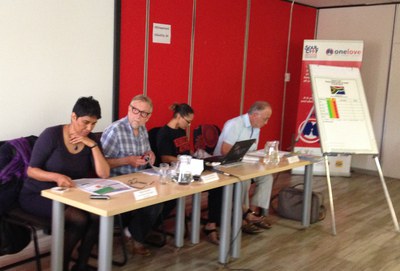
For more information, contact:
Savera Kalideen
Senior Advocacy Manager, Soul City
Cell: 0712270939
Email: savera@soulcity.org.za
Thoko Madonko
Cell: 0837103440
Email: madonko@section27.org.za
Jeff Rudin
Email: jeff@climatejobs.org.za
Isaac Mangena
Human Rights Commission
Tel: 011 8773600
Email: imangena@sahrc.org.za
